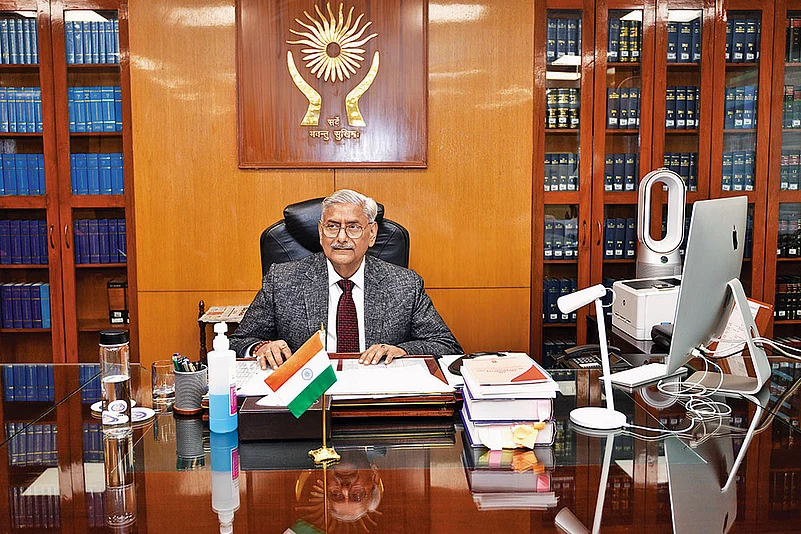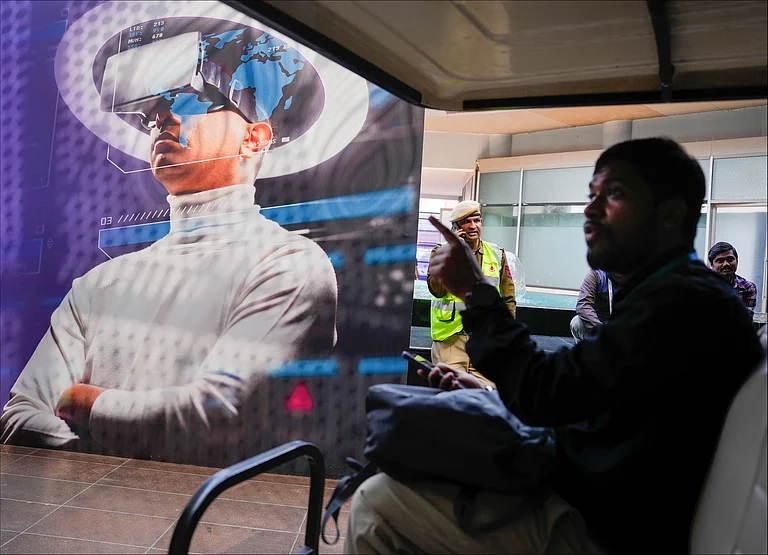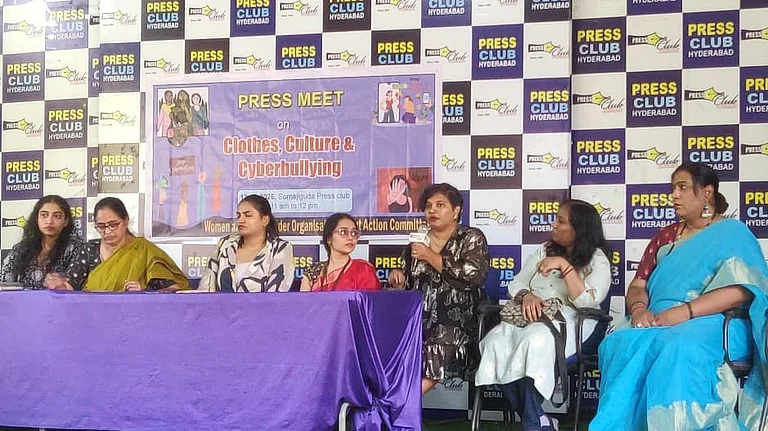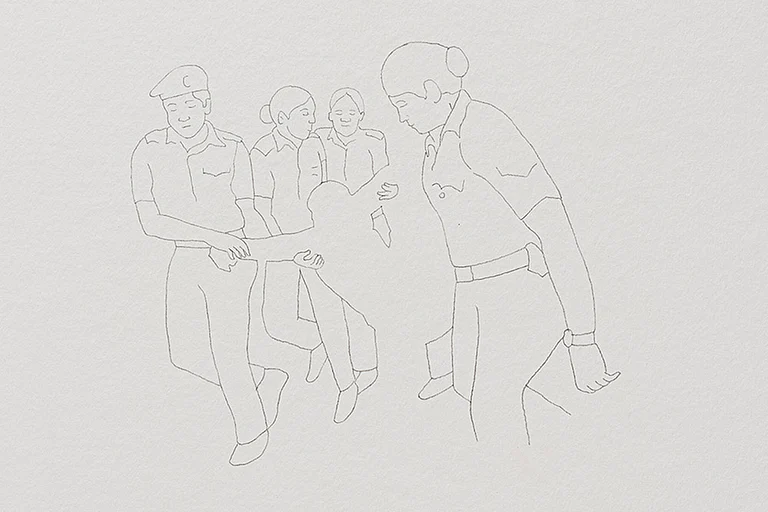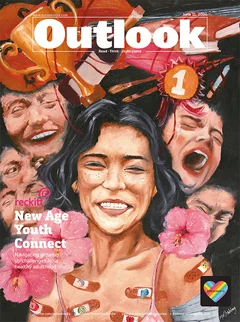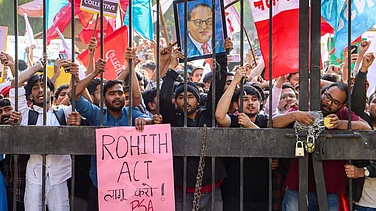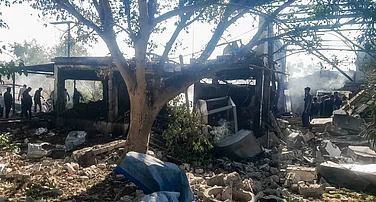What prompted NHRC to issue an advisory on Child Sexual Abuse Material (CSAM) on social media?
CSAM on social media is a new menace transcending boundaries that needs to be stopped to protect childhood and child rights, which is our primary duty. Trafficking and sexual abuse of children are the worst forms of crime. Children are being exposed to the production, distribution, or consumption of CSAM; it can have a long-term psychological/mental impact on the child, causing hindrance to their overall development. We must prevent and curtail production and its distribution and reduce consumption. Prevention is the best approach. Misuse of cyberspace and more responsible conduct of ISP/intermediaries was felt necessary; hence, an advisory was issued.
What are the legal gaps in laws concerning CSAM?
By and large, an extensive legal regime is in place. However, the term “Child Pornography” is outdated and does not encompass all forms of child sexual exploitation. It would be appropriate to adopt the term “Child Sexual Abuse Material” (CSAM) in Section 2(1) (da) of the POCSO Act, 2012. Additionally, the lack of a clear definition for “sexually explicit” under Section 67B of the IT Act, 2000, hinders the prompt identification and removal of online CSAM. This also delays legal processes.
The definition of “intermediary” under Section 2(w) of the IT Act, 2000 must include Virtual Private Network (VPN) service providers, Virtual Private Server (VPS) and Cloud Service Providers.
The punishment of imprisonment of up to seven years under Section 14 of the POCSO Act and Section 67B of the IT Act should be more stringent.
The time given for removing CSAM should be reduced to six hours from 36 hours in 3(1)(d) of the intermediary guidelines, 2021 to minimise damage. This will galvanise the legal procedure for prompt action against those involved in the peddling of CSAM. There is an absence of harmonised laws across jurisdictions, which is crucial as CSAM is an international issue.
The UN must adopt a Draft Convention on ‘Countering the Use of Information and Communications Technologies for Criminal Purposes’, which addresses CSAM and cyber grooming.
How can training of officials and offering support to survivors of sexual abuse be made more effective, considering that most of us come from the same ecosystem that perpetuates the status quo of exploitation?
Rapid action is the answer, not the status quo. Every development of technology is for good and is also misused for negative purposes. We have to constantly upgrade combat mechanisms. Each state/UT must have at least one Specialised State Police Unit in CSAM. Sensitisation, skill development, and comprehensive training are required to handle CSAM cases effectively. Establishing a CyTrain portal with the latest detective and investigative technology is also necessary.
We must focus on awareness programmes in educational institutions to help detect and prevent CSAM early, thereby making children, parents, and teachers proactive participants in the process.
We need a cyber curriculum about cyber safety and the legal implications of cybercrimes to create an informed and vigilant community. Providing psychosocial care and support services to survivors is also essential to the healing process.
LGBTQIA+ cannot be discriminated against. They are entitled to equal protection of human rights. Their right to dignity and property rights should be protected
How do we ensure that specialised law enforcement teams investigate CSAM crimes to cater to the most vulnerable groups in remote areas?
For that, we need mobile outreach units dedicated to remote regions that provide support, education, and assistance related to CSAM issues.
We need technological accessibility and reporting mechanisms, regular monitoring and evaluation, community engagement programmes and localised cultural sensitivity training programmes, along with collaborative partnerships with local civil society organisations and authorities and resource allocation considering the unique challenges faced by remote communities.
What are the legal gaps in regulating internet websites to monitor and block CSAM content online, and how can these be addressed?
Such crimes germinate often across the border. As such, international data sharing remains a challenge due to varying data protection laws and jurisdictional issues. A uniform format for data requests to streamline collaboration between law enforcement and intermediaries is needed. There are privacy and encryption concerns. The cooperation of intermediaries is required. One of the challenges to regulatory compliance is the prohibitive cost of technology for the proactive detection of CSAM for smaller platforms with limited resources.
We need to strictly enforce accountability mechanisms for intermediaries who fail to meet removal deadlines. Moreover, VPNs must be regulated.
Enabling Artificial Intelligence (AI) to detect CSAM before uploading must be made mandatory. Intermediaries should share information regarding CSAM with National Crime Records Bureau (NCRB)/ any other GOI-mandated authority. ISPs should maintain the history of internet connection for at least one year. We must ensure that ISPs comply with the Notification dated April 28, 2022, issued u/Section 70B (6) of the IT Act.
Existing laws give LGBTQIA+ total protection and equality, which is essential. Implementation of the legal provisions on the ground for their welfare has to be further strengthened
What is your broad assessment of laws and their implementation on themes like inclusion, equity, awareness, consent, and protection?
India’s policy initiatives of affirmative action for marginalised communities and social and economic empowerment schemes demonstrate commitment to addressing historical injustices and fostering inclusivity.
Development should be human-centric and inclusive; the upliftment of marginalised classes by affirmative measures is envisaged in Articles 38 & 39 of our Constitution. Unfortunately, the benefit of reservation has not trickled down to the lowest rung within the reserved class, which requires immediate attention. Fruits of progress should be equitably distributed. Distributive justice is need-based to ensure that no one is left behind. We must create awareness in far-flung areas, particularly in vulnerable classes and children from low socio-economic classes. Awareness and protection go together. Digital awareness has increased, which is vital, yet more measures need to be taken to ensure fair and safe use.
Consent should be well-informed, based on proper understanding of consequences, and it should be fool-proofed against misuse, particularly in the context of the vulnerable and specially-abled.
How do you see the legal regime for LGBTQIA+ issues unfolding in the future?
LGBTQIA+ rights must be protected. The NHRC, India has issued a detailed Advisory in this regard on August 15, 2023, to the Centre, States and Union Territory Administrations. LGBTQIA+ cannot be discriminated against. They are entitled to equal protection of human rights. Their right to dignity and property rights should be protected. However, by way of equality, we should not transversely impose views that may not align with the prevailing pre-existing norms and try to change how communities have co-existed for centuries. Existing laws give LGBTQIA+ total protection and equality, which is essential. Implementation of the legal provisions on the ground for their welfare has to be further strengthened.
The commission recognises their primary concern that despite legal advancements, they continue to grapple with discrimination in employment, healthcare, and social services.
We have recommended in our advisory several measures for the welfare of transgender persons, including treating a single transchild of a deceased government employee or pensioner as an unmarried daughter for the family pension and other benefits, allowing them to inherit ancestral agricultural land, besides the inclusion of third gender in civil services jobs; free sex reassignment surgery in government hospitals and grant for the same; separate washroom for the transgender persons in all public places, etc.

You have focused on the improvement of legal education. What about also focusing on sexual and reproductive health from a legal point of view?
Women’s sexual and reproductive choices directly fall under the right to life and privacy, as recognised under Article 21.The woman must determine whether or not her health permits pregnancy and its frequency. She is not a childbearing machine. She should be the final arbiter of whether to carry the pregnancy. Sexual and reproductive care needs to be extended to trafficked girls forced into prostitution, who are especially vulnerable and require protection by law.
In 2018, a national study into sexual and reproductive health was undertaken by the NHRC into health services, HIV/AIDS prevention, maternal health, contraception, abortion, child marriage and gender-based violence.
During COVID-19, the commission issued an advisory on “sexual and reproductive health rights of women” and recently issued an advisory on the welfare of truck drivers from the perspective of sexual health issues. Sexual and reproductive health should not be neglected and carry a stigma. Reproductive health and family planning for all are a must. We have moved closer to achieving equal access and accessibility in this field, which is satisfactory.
NHRC’s priority areas include eradicating all forms of violence and discrimination against women and children; reproductive health of women: eliminating child pornography; juvenile justice, human trafficking; LGBTQIA+; and HIV/AIDS. Where does India broadly stand on having relevant laws and policies and their implementation?
India has laws in place, and we are pioneers in several fields. However, challenges persist in effectively implementing the laws/policies to address disparities and protect marginalised and vulnerable groups. Collaboration among government agencies, civil society organisations, and other key stakeholders is essential. We are progressing satisfactorily in the right direction.
India has laws in place, and we are pioneers in several fields. However, challenges persist in effectively implementing the laws/policies to address disparities and protect marginalised and vulnerable groups
Another priority area is ensuring the right to water, sanitation, and hygiene (WASH), especially for women. While India has made significant progress in this area, what more needs to be done from a rights-based perspective?
The fundamental right to water and sanitation is acknowledged as essential for achieving all other human rights. The NHRC has published booklets on it. The Swachh Bharat Mission (SBM) campaign “Satyagraha se Swachhagraha” has significantly changed India’s sanitation habits.
Women are among society’s most vulnerable members, and their participation in leadership and decision-making can yield positive outcomes. While we are making progress towards a brighter future, it is crucial that we prioritise issues such as water harvesting, groundwater management, and contamination. The best way to address these challenges is through community-based awareness campaigns on various platforms, including popular media. Since every society faces local and regional challenges, this is an ongoing process that requires continuous effort.
We need to address issues of drug abuse in young people, student suicide, and mental health issues. As the process for the general election has begun, parties should evolve a consensus to stop freebies, particularly to those not entitled to need-based distributive justice. The resources for development are limited and should be used systematically for the nation’s development.






